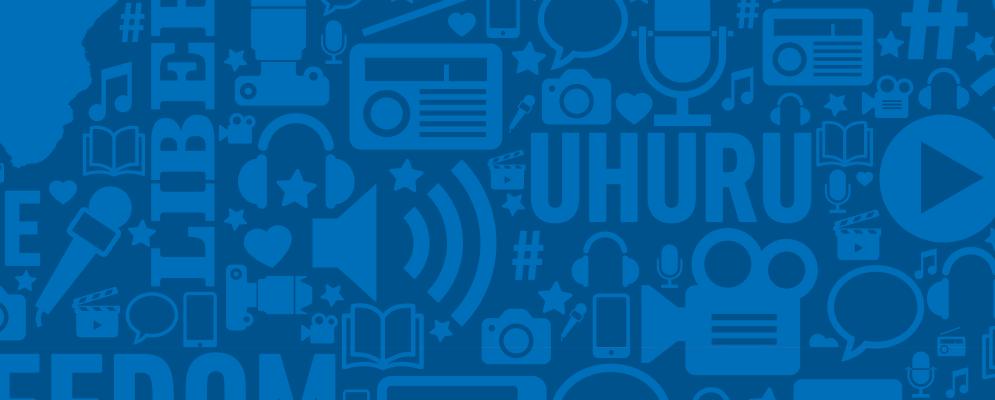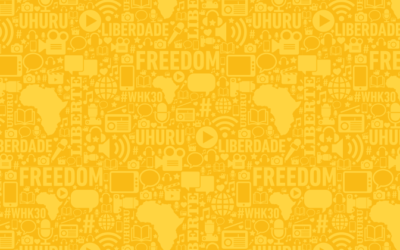by Mulatu Alemayehu Moges
In this article, I attempt to reflect on major digital disruptions that have brought significant changes in the media industry specifically on journalism ethics and the profession based on the principles of the Windhoek Declaration. At most, this reflection mirrors experiences and research from Ethiopia. A key consideration in the Windhoek declaration was the need for a professional, independent and diverse media that serves society. The question today is, what has changed more so in the era of digital media and is journalism adhering to the ethics and codes of the profession.
One cannot deny that digital technology has revolutionised the ways in which media operates throughout the world. Digital technology has made reporting (production and dissemination) both easy and difficult; easy in terms of collecting, processing and disseminating information to large audiences in various forms. At the same time, digital technology has created an opportunity for all interested to act as information or news mediums or purveyors to produce content and reach out to their target audiences. News and information production has increasingly been informalised more so by the prevalence of citizen journalism. Many people have turned to platforms such as Facebook, Twitter, YouTube, and other such platforms to create content and disseminate to their followers and in some cases without due consideration of media ethics. Some writers have large followers and can influence national narratives either positively or negatively. These people with huge followers have come to be known as influencers. This ultimately makes the right to freedom of expression more viable, especially in less democratic countries but equally fraught with danger in the era of misinformation. Oftentimes social media driven violence and hate speech has resulted in social instability. Mainstream media has been tempted, in some cases, to follow the lead of social media in fear of losing audiences hence compromising ethics.
In Ethiopia and globally, digital technologies have had a huge impact on mainstream media, with as an example, the number of audiences declining over the years yet significantly rising on social media more so the sensational ones. The expansion of digital technology in Ethiopia has seen mainstream media such as radio, television and newspapers changing the way they interact with audiences. The media are now live-streaming news and engaging audiences on platforms such as Facebook and YouTube which in itself brings new demands on ethics in terms of moderating debates or feedback and verifying stories posted on such social media platforms. Nevertheless social media platforms have increased mainstream media’s disseminating power allowing local media to reach out to global audiences, more so Ethiopia’s huge diaspora estimated at 3 million. More importantly, online streaming provides an opportunity for the audiences to reflect on views and engage the content by commenting, liking and sharing. This shows how digital technology has changed the overall production and dissemination of information and in a way shifted the practice of journalism from a strictly newsroom-driven content production to a situation where audiences are equally a key player in content production considerations. In many ways newsrooms are in an ethics minelfled in which new skills and new routines are needed to avoid mistakes.
It is also fair to note that digital technology has allowed journalists to move from mainstream media to the digital platforms or online journalism. Journalists working in hostile areas of Ethiopia are increasingly using online platforms to share their stories and remain safe. Some work under the cover of anonymity for their safety which yet again raises ethical questions on the authenticity of the content they share. A positive outcome of online journalism is however that media and journalists have opened new revenue streams with new business approaches emerging in which journalists are making money from online news sharing platforms, consequently engaging in various business development models
Another area of concern for journalism in relation to digital platforms are the unintended consequences in which journalists are under pressure from social media audiences to process and share information which may not be fully verified. As a result of pressure to “break the story”, mainstream media journalists are falling into the social media trap by reporting unsubstantiated information often informed by social media posts. This has presented a huge challenge for media ethics with journalists standing accused of reporting unverified information or falsehoods. In many countries this has become a media policy flashpoint with governments accusing the media of peddling fake news.
Ethiopian newsrooms have been caught in this crisis and many have no capacity for orienting journalists to guard against these ethical lapses and code of practice breaches. While journalists are concerned with professional and ethical values in relation to online platforms, there appear to be no concerted effort both in Ethiopia and sub-Saharan Africa on suitable responses hence a growing fear of the erosion of media ethics. The challenges that mainstream journalism faces in keeping itself at the forefront of news stories production and dissemination is the competition from social media and in that a desire to catch up and keep audiences. A key factor is that online media content producers do not exhaustively apply the codes of ethics to report stories objectively, hence they get caught in misinformation and in cases of sensationalism. The temptation is high for mainstream journalists to keep pace with social media, hence the ethical traps and pitfalls that many journalists are falling into. This is because social media content producers are not measured with the same professional yardstick as social media content producers or influencers. Social media is often measured by the number of clicks, views, likes, comments and shares which is also a source of income for them and far less on ethics and objectivity, balance or fairness. The interest of social media content producers is to reach out to a large audience, hence the rush to post stories without thorough investigation or verification. In the mainstream media, clicks don’t hold space and the judgement on journalists is harsher should they be found on the wrong side of professional ethics and codes. In essence journalism is facing its most trying times and how the profession will develop into the future is a matter of conjecture. What cannot be denied is that journalism must remain truthful to facts yet responsive to audience needs.
The other issue that has been observed in the current media is an expansion of hate speech in news stories or posts. The use of hate speech is increasingly becoming rampant in both online and mainstream media. This is largely supported by the fact that digital media allows information to be shared more quickly and sometimes in real time. Social media audiences and content creators often talk without restraint and express their ideas on different platforms using inciteful speech on polarising issues, such as ethnicity in the case of Ethiopia. This is sometimes observed in the mainstream media too. In a rapid assessment of the content of mainstream media over a three-month period, I discovered that 20% of the selected content from the online media platforms such as Facebook and YouTube were littered with speech that had the potential to incite conflict and animosity, thus posing a danger to the community.
It is evident that one cannot ignore the current digital revolution. Rather, it is prudent to find areas of synergy and collaboration with the current revolution in technology whilst being mindful of maintaining journalism values and ethical standards.
As we mark 30 years of the Windhoek Declaration it is important to reflect on issues of professional development of media in the era of digital media platforms. There is a need to keep journalism professional while enhancing its reach and capacity through digital platforms. Balancing this will require resources for training, new tools on how newsrooms operate and media literacy awareness to guard against misinformation and disinformation often at the heart of conflict, violence that we now see in many societies.
Mulatu Alemayehu Moges (PhD) is an Assistant professor of Journalism and Communication at Addis Ababa University.


